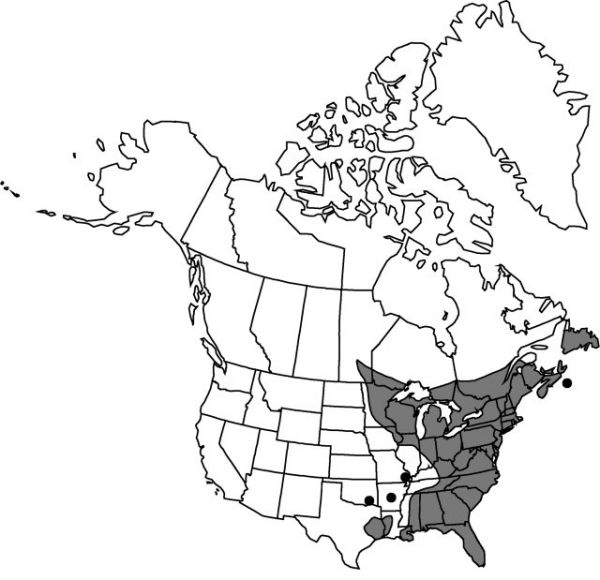Difference between revisions of "Calopogon tuberosus"
Prelim. Cat., 52. 1888.
FNA>Volume Importer |
imported>Volume Importer |
||
| (5 intermediate revisions by 2 users not shown) | |||
| Line 7: | Line 7: | ||
|year=1888 | |year=1888 | ||
}} | }} | ||
| − | |basionyms={{Treatment/ID/ | + | |special_status={{Treatment/ID/Special_status |
| + | |code=F | ||
| + | |label=Illustrated | ||
| + | }} | ||
| + | |basionyms={{Treatment/ID/Basionym | ||
|name=Limodorum tuberosum | |name=Limodorum tuberosum | ||
|authority=Linnaeus | |authority=Linnaeus | ||
| + | |rank=species | ||
| + | |publication_title=Sp. Pl. | ||
| + | |publication_place=2: 950. 1753 | ||
}} | }} | ||
|synonyms= | |synonyms= | ||
| Line 48: | Line 55: | ||
-->{{#Taxon: | -->{{#Taxon: | ||
name=Calopogon tuberosus | name=Calopogon tuberosus | ||
| − | |||
|authority=(Linnaeus) Britton | |authority=(Linnaeus) Britton | ||
|rank=species | |rank=species | ||
| Line 59: | Line 65: | ||
|publication title=Prelim. Cat., | |publication title=Prelim. Cat., | ||
|publication year=1888 | |publication year=1888 | ||
| − | |special status= | + | |special status=Illustrated |
| − | |source xml=https:// | + | |source xml=https://bitbucket.org/aafc-mbb/fna-data-curation/src/2e0870ddd59836b60bcf96646a41e87ea5a5943a/coarse_grained_fna_xml/V26/V26_1224.xml |
|subfamily=Orchidaceae subfam. Epidendroideae | |subfamily=Orchidaceae subfam. Epidendroideae | ||
|tribe=Orchidaceae tribe Arethuseae | |tribe=Orchidaceae tribe Arethuseae | ||
Latest revision as of 22:12, 5 November 2020
Plants 4–110(–135) cm. Corms globose to elongate, not forked, 8–31 mm. Leaves not appressed to inflorescences at flowering; blade linear, lanceolate, or seldom elliptic-lanceolate, 2–50 cm × 2–35(–50) mm, margins slightly to strongly curled transversely. Inflorescences green or slightly purple at base, becoming entirely green after flowering, 4–135 cm; floral bracts ovate to ovate-lanceolate, subulate, 3–30 mm. Flowers 1–25, opening sequentially, magenta, pink, to white, faintly fragrant; dorsal sepal oblanceolate, 15–31 × 5–18 mm, apex acuminate; lateral sepals occasionally reflexed distally, ovate to lanceolate, slightly falcate, 13–26 × 5–16 mm, apex apiculate to acuminate; petals obpandurate to seldom elliptic, slightly falcate, 15–28 × 4–14 mm, apex obtuse; lip 11–23 mm, middle lobe with dilated end typically anvil-shaped, seldom triangular, 5.5–21 mm wide; column 12–25 × 1–2 mm, distal end 4.5–10 mm wide; rostellum present or absent; stigma at angle to column surface. Capsules ovoid to ellipsoid, 13–30 × 5–10 mm. 2n = 26, 40, 42.
Distribution

e North America, West Indies (Bahamas, Cuba).
Discussion
Varieties 2 (2 in the flora).
Calopogon tuberosus is the most variable and widespread species in the the genus. It occurs from Manitoba and Newfoundland south to Texas, Florida, the Bahamas, and Cuba.
Calopogon tuberosus can be distinguished from other species in the genus where sympatric by its relatively robust size and elongated lip with wide, anvil-shaped dilated distal end. Plants with a triangular-shaped middle lip lobe are uncommon in the south and occur toward the northern part of the range, and those with long but narrowed lips occur in C. tuberosus var. simpsonii, the latter plants generally being much larger and occurring in a different habitat than all other species of Calopogon.
Selected References
None.
Key
| 1 | Leaf blade slightly curled transversely; dilated distal portion of middle lip lobe broadly expanded and not whitened except in entirely white flowers; acidic wetlands. | Calopogon tuberosus var. tuberosus |
| 1 | Leaf blade strongly curled transversely; dilated distal portion of middle lip lobe narrowly to widely expanded, whitened; wet, alkaline savannas. | Calopogon tuberosus var. simpsonii |